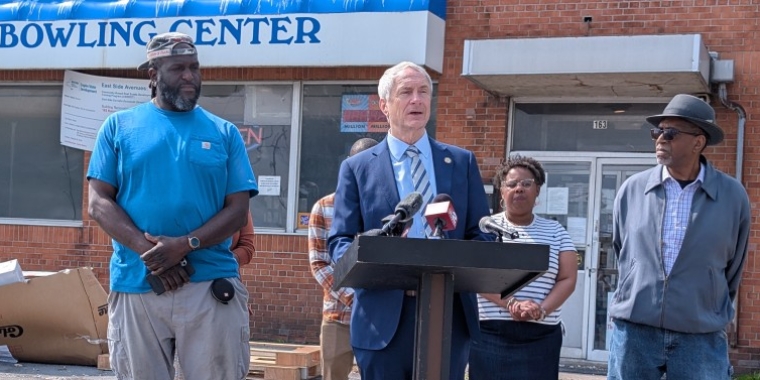Eliminating the Effects of Inflation on the Minimum Wage
The budget raises the minimum wage for each of the next three years, increasing it to $16 per hour upstate by 2027. After that, future increases will be tied to inflation to ensure that people earning the minimum wage will not see their wages effectively decreased if the cost of living goes up.
Supporting Families
The budget expands child care eligibility up to 85% of the State median income level and decreases low-income families’ contributions from 10% of their income which exceeds the federal poverty level to 1% of that income. It also expands the eligibility for the Empire State Child Credit to include children under the age of five.
Supporting Homeowners and Renters
The budget adds an extra $10 million of funding for the Homeowner Protection Program (HOPP), increasing it to $40 million. HOPP provides free legal services to prevent homeowners facing mortgage and tax foreclosure from losing their homes.
The budget also increases funding for the Emergency Rental Assistance Program (ERAP), adding an additional $391 million to benefit Section 8 recipients and their landlords, who were not previously eligible for the program. It also provides $15 million in additional funding for legal representation for eviction, for a total of $50 million
Improving Access to Healthy Foods
The budget allocates $2 million to support the Double Up Food Bucks Program, which provides New Yorkers who utilize the Supplemental Nutrition Assistance Program (SNAP) with a $1-for-$1 match to buy fresh, New York-grown fruits and vegetables at participating small retail, grocery, and farm direct sites. It also provides $24 million for FeedMore WNY.
Supporting Human Services Agencies and Safety Net Hospitals
The budget provides $5.1 million in additional funding to increase the Human Services Cost of Living Adjustment (COLA) from 2.5% to 4%, for a total cost of $13.6 million for all workers the New York Office of Mental Health (OMH), Office of Addiction Services and Supports (OASAS), Office of Children and Family Services (OCFS), and Office for People with Developmental Disabilities (OPWDD).
The budget also includes $35 million to support 340B-funded entities and an additional $500 million to support staffing for distressed hospitals.
Refugee Resettlement and Supporting AAPI
The budget includes a record $7 million in funding for refugee resettlement agencies through the New York State Enhanced Services to Refugees Program (NYSESRP). As the first state to provide funding to support refugee integration with the creation of NYSESRP in 2017, New York has been a leader in its commitment to refugees. More than 90% of refugees coming into New York settle in upstate communities.
The budget also provides $30 million for Asian American and Pacific Islander (AAPI) equity budget coalition priorities for crisis intervention initiatives and community-based programs to combat bias crimes.


